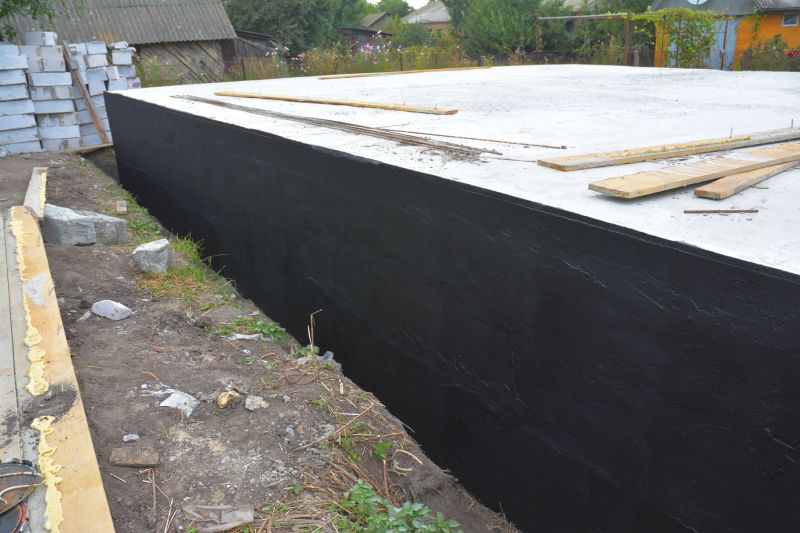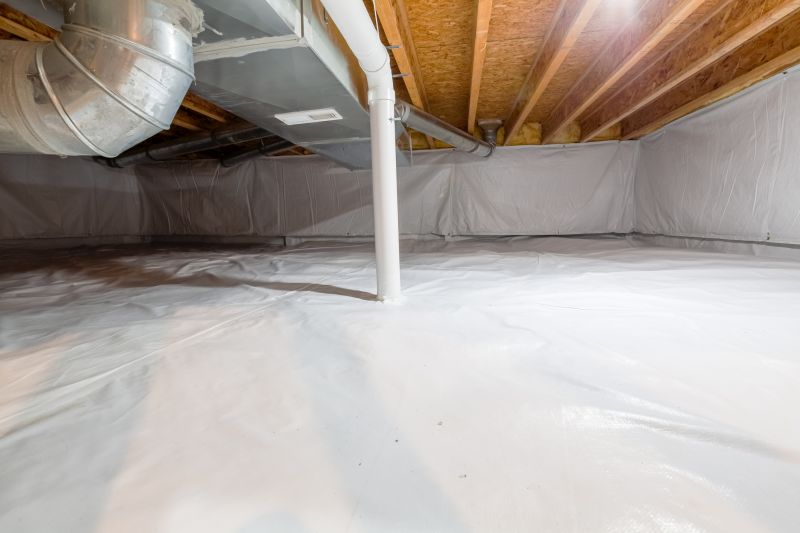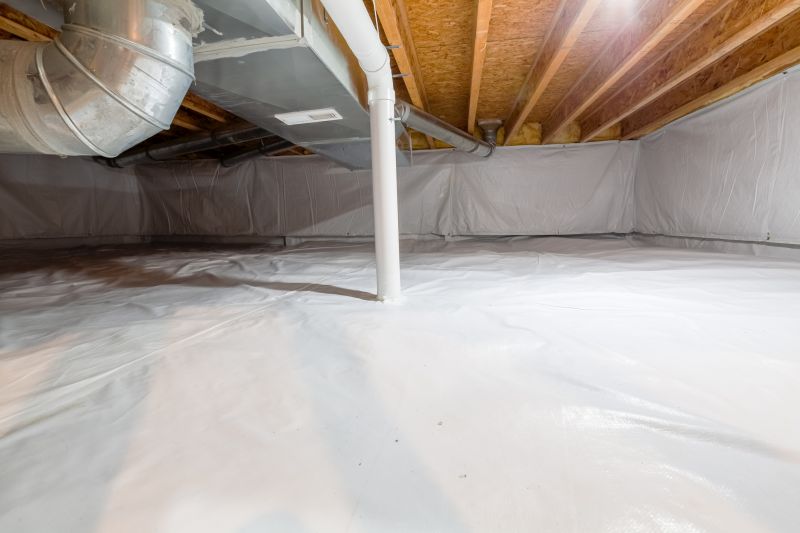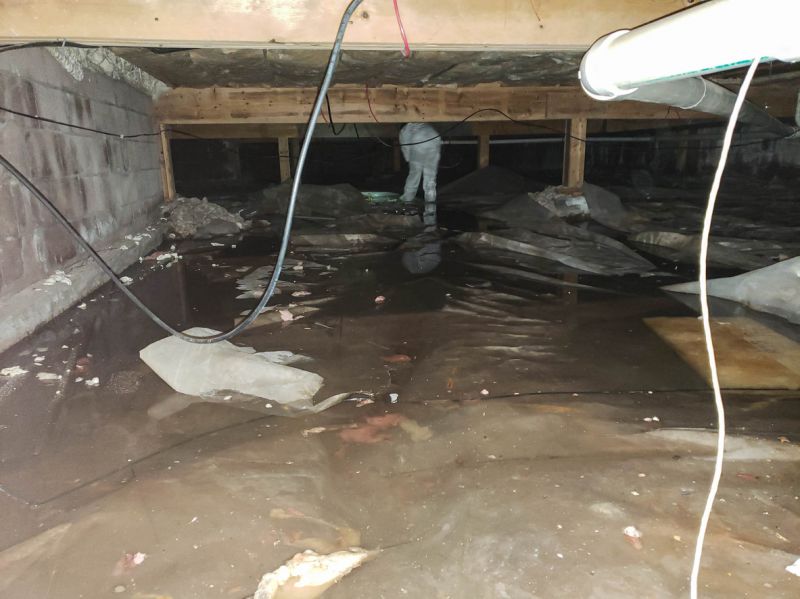Crawlspace Moisture Control Experts
Crawlspace encapsulation involves sealing and insulating the crawlspace area beneath a building to improve indoor air quality, prevent moisture intrusion, and enhance energy efficiency. Proper encapsulation reduces the risk of mold growth, wood rot, and pest infestations, contributing to a healthier and more comfortable living environment.
Encapsulation prevents excess moisture from entering the crawlspace, reducing mold growth and structural damage caused by damp conditions.
Sealing the crawlspace minimizes heat loss, leading to lower energy bills and improved home comfort.
Reducing mold and dust mites in the crawlspace can improve indoor air quality and reduce allergy symptoms.
A sealed crawlspace deters pests such as rodents and insects from entering and nesting.

A fully encapsulated crawlspace with sealed walls and insulated lining.

Interior view showing vapor barrier and insulation after encapsulation.

Crawlspace with vent covers and sealed access points.

Multiple completed crawlspace sections demonstrating consistent sealing.
Neglecting crawlspace encapsulation can lead to significant issues, including increased energy costs, mold proliferation, wood rot, and pest infestations. Studies indicate that unsealed crawlspaces can contribute to up to 15% higher energy bills due to heat loss. Additionally, moisture problems can cause structural damage and indoor air quality concerns, impacting health and safety. Proper encapsulation offers a proven solution to these risks, providing long-term benefits for property integrity and occupant well-being.
| Benefits of Crawlspace Encapsulation | Risks of Not Encapsulating |
|---|---|
| Reduces moisture and mold growth | Increases risk of mold and mildew |
| Improves indoor air quality | Promotes pest infestations |
| Enhances energy efficiency | Leads to higher heating and cooling costs |
| Protects structural components | Causes wood rot and decay |
| Prevents pest entry | Allows pests to nest and damage property |
| Increases property value | Decreases home value due to damage |
| Reduces allergens and dust mites | Contributes to allergy symptoms |
| Maintains consistent indoor temperature | Creates temperature fluctuations |
